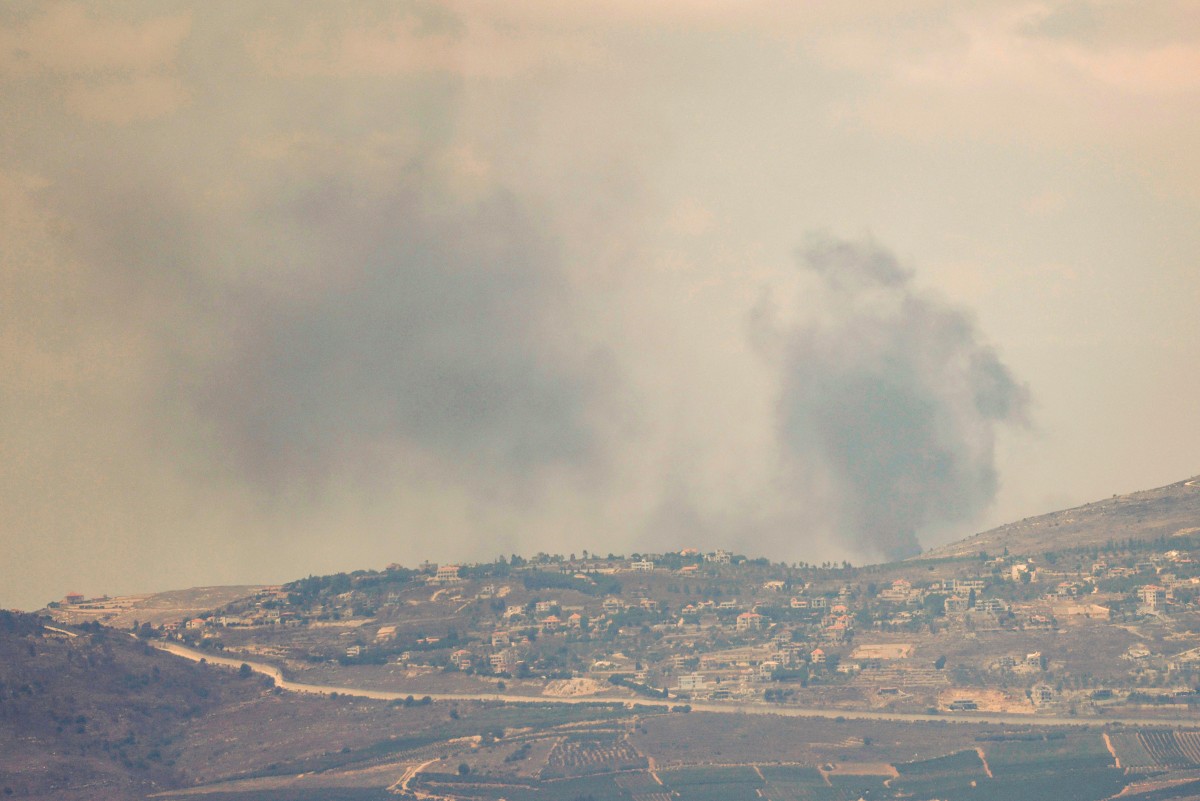Urgent calls for foreign nationals to leave Lebanon grew on Sunday with France warning of “a highly volatile” situation as Iran and its allies ready their response to high-profile killings blamed on Israel.
Lebanon’s Iran-backed Hezbollah movement, which has traded near-daily fire with Israeli forces since the Gaza war broke out in October, announced its fighters had fired a new barrage of rockets at Israel’s north overnight into Sunday.
The Israeli military said 30 projectiles were launched from Lebanon, with most of them intercepted.
With Israel on high alert anticipating major military action from Iran-backed Hezbollah and others, Israeli Defence Minister Yoav Gallant said: “If they dare to attack us, they will pay a heavy price.”
Near the commercial hub of Tel Aviv, medics and police said two people were killed on Sunday in a stabbing attack.
The assailant, a Palestinian from the Israeli-occupied West Bank, was “neutralised” by police and taken to hospital, where he was pronounced dead.
Israeli bombardment of the Gaza Strip continued, witnesses and officials in the Hamas-ruled territory said, almost 10 months into the war triggered by the Palestinian militant group’s October 7 attack on southern Israel.
Saud Arabia joined France, Canada and Jordan in calling on their citizens to leave Lebanon.
“In a highly volatile security context”, French nationals were “urgently asked” to avoid travelling to Lebanon, and those already in the country should leave “as soon as possible”, the foreign ministry in Paris said.
The United States and Britain have issued similar warnings.
France on Sunday also urged its nationals living in Iran to “temporarily leave”, warning Iranian airspace and airports could close.
Several Western airlines have suspended flights to Lebanon and other airports in the region.
On Sunday Qatar Airways said the Doha-Beirut route would “operate exclusively during daylight hours” at least until Monday.
– Another deadly school strike –
Wednesday’s assassination of Hamas political leader Ismail Haniyeh in Tehran, hours after the Israeli killing of Hezbollah’s military chief in Beirut, has triggered vows of vengeance from Iran and the “axis of resistance” of Tehran-backed armed groups.
Israel, accused by Hamas, Iran and others of killing Haniyeh, has not directly commented on the attack.
But Prime Minister Benjamin Netanyahu said Wednesday that “Israel had delivered crushing blows to all our enemies”.
Israel has vowed to destroy Hamas in retaliation for its unprecedented October 7 attack which resulted in the deaths of 1,197 people, mostly civilians, according to an AFP tally based on Israeli official figures.
Militants also seized 251 hostages, 111 of whom are still held captive in Gaza, including 39 the military says are dead.
Israel’s retaliatory campaign has killed at least 39,583 people in Gaza, according to the territory’s health ministry, which does not give details of civilian and militant deaths.
Haniyeh was Hamas’s lead negotiator in efforts to end the war.
His killing raised questions about the continued viability of efforts by Qatari, Egyptian and US mediators to broker a truce and exchange of hostages and prisoners.
In Gaza, the Civil Defence agency said an Israeli strike hit two Gaza City schools housing displaced people in the territory’s north on Sunday, killing at least 30 people.
This brings to at least 11 the number of schools hit in Gaza since July 6.
Israel’s army confirmed the latest strike, saying the schools were used by Hamas.
The Israeli military earlier said its air forces had struck around 50 militant target throughout Gaza in the previous 24 hours.
The Palestinian Red Crescent said eight bodies were pulled from a residential building after an Israeli air strike in north Gaza.
Medics at a hospital in central Gaza said at least five people were killed in an Israeli drone strike on tents housing displaced Palestinians at the medical complex.
– War ‘without constraints’ –
Analysts have told AFP that a joint but measured action from Iran and its allies was likely, while Tehran said it expects Hezbollah to hit deeper inside Israel and no longer be confined to military targets.
Israel’s ally the United States said it would move warships and fighter jets to the region.
US President Joe Biden, asked by reporters if he thought Iran would stand down, said: “I hope so. I don’t know.”
In an interview with ABC News, White House deputy national security adviser Jon Finer said the United States was “doing everything possible to make sure that this situation does not boil over”.
As part of those efforts it is “so urgent” that a Gaza ceasefire deal be reached, Finer said.
Jordanian Foreign Minister Ayman Safadi made a rare visit to Tehran where he met Iran’s acting top diplomat Ali Bagheri for “consultations”, local media reported.
Haniyeh’s killing “has brought the Middle East to its moment of greatest peril in years”, the International Crisis Group (ICG) think tank said in a report.
The potential for a miscalculation that would trigger a war “without constraints… is likely greater now than it was in April”, it added.
On April 13, Iran fired a barrage of drones and missiles at Israel — most of which were intercepted — after a deadly strike on Tehran’s consulate in Damascus.
The ICG said that securing “a long overdue ceasefire” in Gaza was “the best way of meaningfully reducing tensions in the region”.
Hamas officials but also some analysts as well as protesters in Israel have accused Netanyahu of prolonging the war.
On Sunday, Netanyahu told his cabinet he was “making every effort” to return the hostages and was prepared “to go a long way” to do so.

